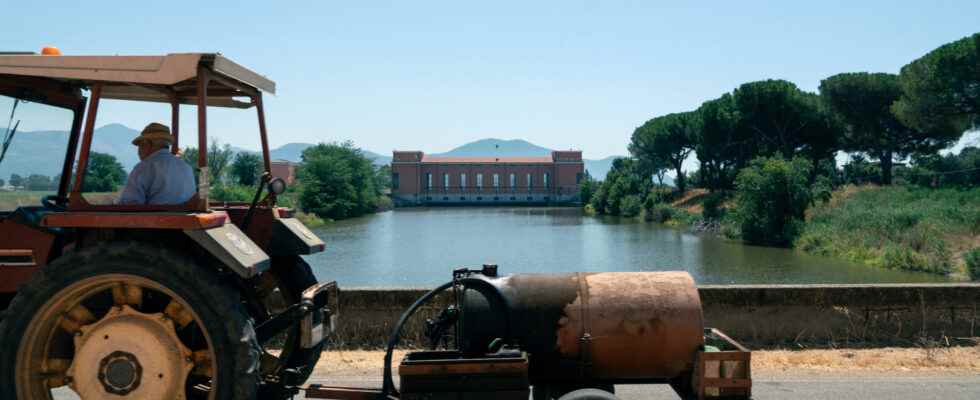Lost in the middle of nowhere about sixty kilometers south of Rome, the place has something unreal about it. We are in the middle of crossing the Agro pontino – the ancient Pontine marshes – which stretches as far as the eye can see in all directions, when the first signs appear announcing the Piana delle Orme complex, dedicated to the local history of the first half of the 20th centurye century, from the beginning of the fascist era to the end of the Second World War. Halfway between a museum and a theme park, the place surprises with its dimensions: with sixteen pavilions of 1,500 square meters each, plus an open-air space where old models of airplanes are exhibited, this private institution, imagined by a Sicilian entrepreneur named Mariano De Pasquale (1938-2006), was the project of a lifetime, and it could have been just the whim of a mad collector. On the contrary, it is a treasure, as interesting for the richness of the pieces collected as for its way of putting the history of the region into perspective, in particular the fascinating chapter of the draining of the marshes, between 1928 and 1932.
A hundred years ago, there was nothing here except bare earth and unhealthy marshes, abandoned by men since the end of antiquity due to malaria, and crossed by the Via Appia. In this area of just over 1,000 square kilometers in total, wedged between the Tyrrhenian Sea and the mountains, starting from the south of Rome to go to the small town of Terracina, the living conditions of the few seasonal workers were miserable. The various sanitation efforts carried out by the popes and then by the Piedmontese, once Italian unity was achieved, had had no effect. To solve the problem, which also arose in many other regions, especially in the Po plain and in Veneto, the plans and the technology existed. All that was missing were the human resources and the political will.
For the fascist regime, it was the perfect place to demonstrate its efficiency – as well as the incompetence of the liberal governments that had preceded it. The Pontine marshes will therefore be the object of an unprecedented demonstration of force. Young, dynamic and passionate about speed, Mussolini physically embodies the march of modernity. Where parliamentary democracy, exhausted by behind-the-scenes struggles and broken promises, was sinking into discredit, fascism would prove its effectiveness on the ground. Are the elements contrary? Duce’s Italy will wage battle against them, until victory.
You have 76.69% of this article left to read. The following is for subscribers only.
